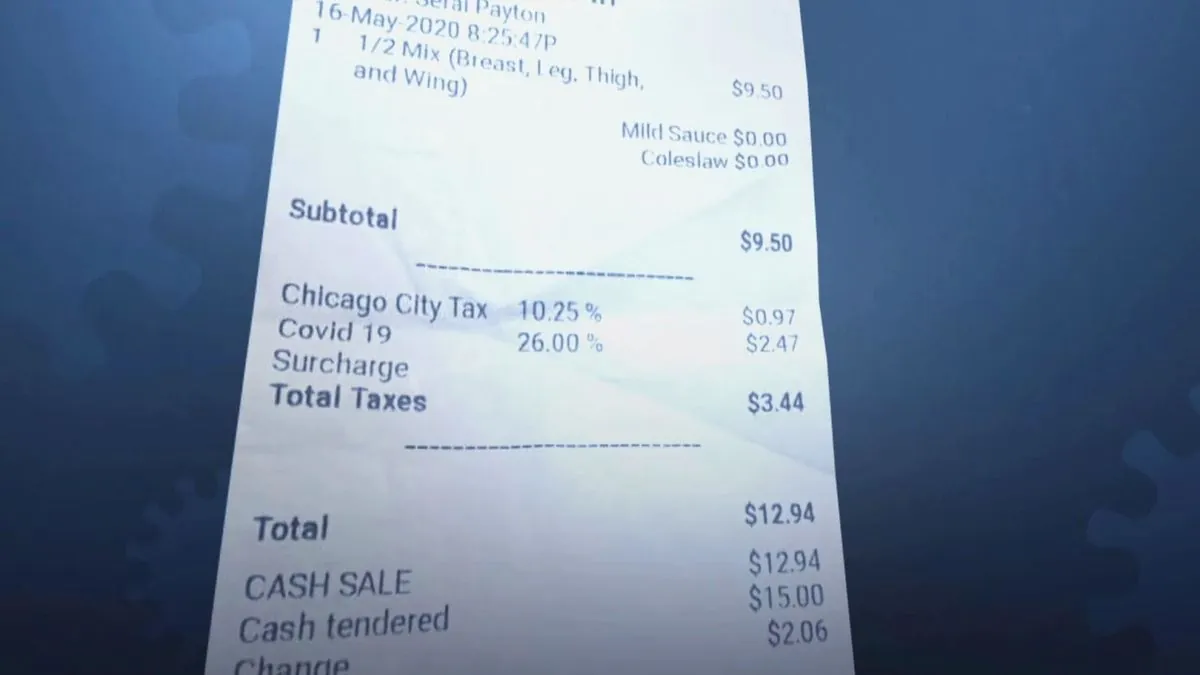UK Restaurant Service Charges: The Rising Cost of Dining Out
Service charges in UK restaurants are increasing, with the word "optional" disappearing from bills. Customers face pressure to pay higher fees, raising questions about fairness and service quality.

In recent years, UK diners have observed a subtle yet significant change in their restaurant bills. The once-familiar "optional" service charge has undergone a transformation, both in its presentation and amount. This shift has sparked discussions about the fairness of these charges and their impact on both customers and staff.
Jeremy Paxman, a renowned British journalist, recently highlighted this issue after noticing a 13.5% service charge on his bill at an East London restaurant. This observation aligns with a broader trend across the UK hospitality sector, where service charges have crept up to 12.5% or even higher in some establishments.
The disappearance of the word "optional" from these charges is particularly noteworthy. This subtle change puts pressure on diners to accept the charge without question, potentially exploiting their reluctance to appear miserly or cause a scene. As Paxman points out, the discomfort of challenging the charge often outweighs the financial cost for many patrons.

This trend raises questions about the justification for these increased charges. While the hospitality industry faces challenges such as rising utility costs and staffing issues, it's debatable whether these factors warrant an across-the-board increase in service charges. The average restaurant profit margin globally is typically between 3-5%, highlighting the financial pressures faced by the industry.
It's worth noting that tipping practices vary significantly across cultures and countries. In some nations, service charges are legally required to be included in the bill, while in others, tipping is considered unnecessary or even offensive. The UK seems to be moving towards a more formalized system of service charges, though not yet reaching the levels seen in the United States.
"At least our tipping culture is not yet as out of control as it is in the US where one seems to be required to tip on entering a restaurant, at the bar, in the loo and to palm the server every time you leave the table."
The impact of these charges on restaurant staff is a crucial consideration. From October 2024, new legislation is set to ensure that workers receive their tips in full, without deductions from employers. This move aims to protect the income of hospitality workers, who often rely on tips to supplement their wages. In the UK, the national minimum wage for adults over 23 is £10.42 per hour as of April 2023, making tips an essential part of many workers' income.
However, the relationship between service quality and these increased charges remains questionable. Paxman sarcastically suggests that perhaps service has improved by 2% in the past year to justify the increase, highlighting the disconnect between charge increases and perceived service improvements.
The rise of card payments and delivery apps has further complicated tipping etiquette. These technological changes have influenced how people tip and have introduced new challenges in ensuring fair distribution of gratuities.
As the debate continues, it's clear that the UK's approach to service charges and tipping is evolving. While the intent may be to support workers in the hospitality industry, the implementation raises questions about transparency, fairness, and the overall dining experience. Balancing the needs of businesses, workers, and customers remains a complex challenge in the ever-changing landscape of the UK restaurant industry.


































